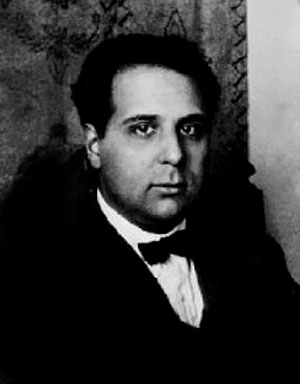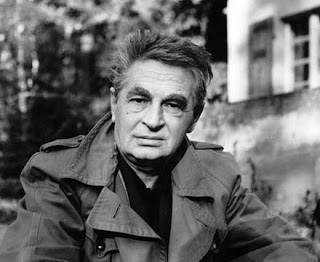Googling the term ‘inner émigré’ I come up mostly with links to Seamus Heaney’s use of it in the poem ‘Exposure’, the poem with which he ended North (1975):
I am neither internee nor informer;
An inner émigré, grown long-haired
And thoughtful . . .

In a 1998 interview, Heaney discussed his use of the term: As far as possible, you try to remain a mystery to yourself. Living in Ireland, not being an exile, living in Ireland as a social creature, as a familiar citizen, I think there is a great danger that one’s social persona might overwhelm one’s daimon — if you’ll permit me such a grand term . . . And so what one is always trying to do is displace oneself to another place or space . . .Wicklow is where I first thought of myself as being an inner émigré. Since 1988 . . . I’ve been able to own the cottage and to think of it as my “place of writing.” When I said “inner émigré,” I meant to suggest a state of poetic stand-off, as it were, a state where you have slipped out of your usual social persona and have entered more creatively and fluently into your inner being. I think it is necessary to shed, at least to some extent, the social profile that you maintain elsewhere.
Heaney’s explanation of the term here is almost wholly personal and uncontroversial. Most of us would agree that we need to slip the moorings of our more socially tied selves in order to find the place of poetry. This is in part simply the required liberation from the way we use language to operate in (utilitarian) society though it’s also a shaking loose from the (again utilitarian) intentions and feelings of the quotidian. Having said that, Heaney does not mean a retreat into some up-dated Celtic Twilight world, soft-focused and fey, an abandonment of MacNeice’s requirement that modern poets are readers of newspapers, capable of pity and laughter, involved in personal relationships, actively interested in politics, susceptible to physical impressions.
This is more clear when Heaney acknowledges the term ‘inner émigré’ once had a specific meaning in the 1920s and 30s in Soviet Russia. It referred to someone “who had not actually gone into exile but who lived at home disaffected from the system. Well, to some extent that was true of myself. Certainly, in relation to Northern Ireland.”

Heaney goes on to talk of finding in George Seferis’ work a connected idea, developed in The Redress of Poetry (1995): Seferis is reading Greek poetry during the war in the nineteen forties and he’s trying to write an article. There is distress, uncertainty, destruction all round him, with civil war looming. And he’s reading poetry and he’s really testing it. Does this thing have any value? And at one point he says: “Reading X this morning, I found that poetry is a help.” I think that what he means is that poetry secures some final place in your being, some little redoubt in your consciousness that will not be taken over by history or the world or disaster . . . Poetry’s value is established and promulgated by people who have known that feeling or something like it.
The term ‘inner émigré’ is also often used to describe Peter Huchel’s work though he was in the unusual situation of having to develop the strategy twice over. His very early poems were linked to the sort of art fostered around 1920 by the League of Proletarian Revolutionary Writers. There’s no doubt he was on the side of the proletariat, the servants and exploited farmhands. He once said: “What did I care about in those days? I wanted to make visible in the poem a deliberately ignored, suppressed class, the class of the people, the maidservants and coachmen”. Even at this early stage his work did not include any proposals for a political solution and his concerns over social deprivation (witnessed from childhood days in the Brandenberg countryside) led him not to public proclamation but more inward to articulate a vision of a more fundamental relationship between productive human activity and the natural environment. It’s no surprise that Huchel felt close ties to the work of Robert Frost, though Huchel’s early verse (more than the American poet) is concerned with a representation of harmony and continuity, more fulfilment than frustration of fulfilment.

But with the rise of Hitler in the 1930s, Huchel began to develop the strategy of the ‘inner émigré’, publishing very little, even deciding to withhold an entire collection of poems, fearing it might be associated with the kind of blood-and-soil nature verse approved by National Socialism. His response to political changes was silence and non-cooperation.
It’s best to understand Huchel’s short-lived flash of faith in East German land reform in the immediate Soviet-Occupied post-war years in terms of his earlier social concerns. As John Flores argues, Huchel’s praise of the “law” of land reform is “not to be viewed as a sudden sacrifice in answer to official decrees, an unwilling turn to a theme totally incongruous with all his earlier poetic concerns, but as a logical continuation, in a way the culmination of his sympathy for the unprivileged classes inhabiting the countryside of his origins.” Within a few years, as the poet grew increasingly discouraged by developments in DDR society, his emphasis shifts from the praise of productive human activity in nature and the social order, to a concern for the enduring misery of men, regardless of the structure of society.

Huchel again had to adopt the role of ‘inner émigré’ being now at odds with East German politics yet still writing (and editing Sinn und Forme). His work becomes characterised “less by sympathy with those denied the privileges and rights due to them, more by meditations on the pain and uncertainty which permeates all human existence” (Flores again). Huchel’s tone becomes sombre and melancholy, poetic diction cryptic, his palette narrows, full of recurrent symbols. Poems from the 1950s are implicit statements of his ‘counterposition’ to the ‘construction of socialism’. Franz Schonauer suggests Huchel’s poems are not the expression of a direct opposition or political protest and express a loss of confidence. These poems are winter psalms. What is at stake is the human intellect and its power of resistance when reason and culture seem brutally damaged, in a frozen motionless state. This is from ‘Exile’, published in 1972:
With evening, friends close in,
the shadows of hills.
Slowly they press across the threshold,
darkening the salt,
darkening the bread
and strike up conversation with my silence.
Outside in the maple
the wind stirs:
my sister, the rainwater
in the chalky trough,
imprisoned,
gazes up at the clouds.
Huchel could still write: “The creative, even eruptive, element in lyric poetry only rarely exists without rules; it needs a container, a form, so as not to disperse. Spring water spilled on the floor has only a dim glow – but when poured into a glass it is full of light”. This is the same little redoubt that Seamus Heaney found in Seferis; each hard-won poem as a receptacle of something that will not be taken over by history or the world or by disaster.

i cite as germane Richard Wilbur’s ‘Advice to a Prophet’ pp81 of ‘fifty years of American Poetry’ from the Academy of American Poets edited by Robert Penn Warren 9 780440 218777. T.S. Elliott once suggested that what happens in American poetry today will inevitably occur in English verse tomorrow. We have after all a shared language even if that becomes L=A=N=G=U=A=G=E poetry, Chomsky grammar, or plain Webster’s dictionary.
LikeLiked by 1 person
Could I also suggest that to be an inner emigre also entails being able to temporarily suspend certainties, not just political, and of one’s social being, but also inclusive of scientific, academic, sometimes cultural.
That sudden feel of freedom to write what is to be written and not be derailed, inhibited, hemmed-in – that experience is so rare, and yet seems the real thing.
LikeLiked by 1 person
Yes I agree Michael. Perhaps in that suspension lies the strange sense of inspiration that can come. Yet as I tried to say this does not mean drifting off into some never land either. Freedom to engage then perhaps.
LikeLiked by 1 person